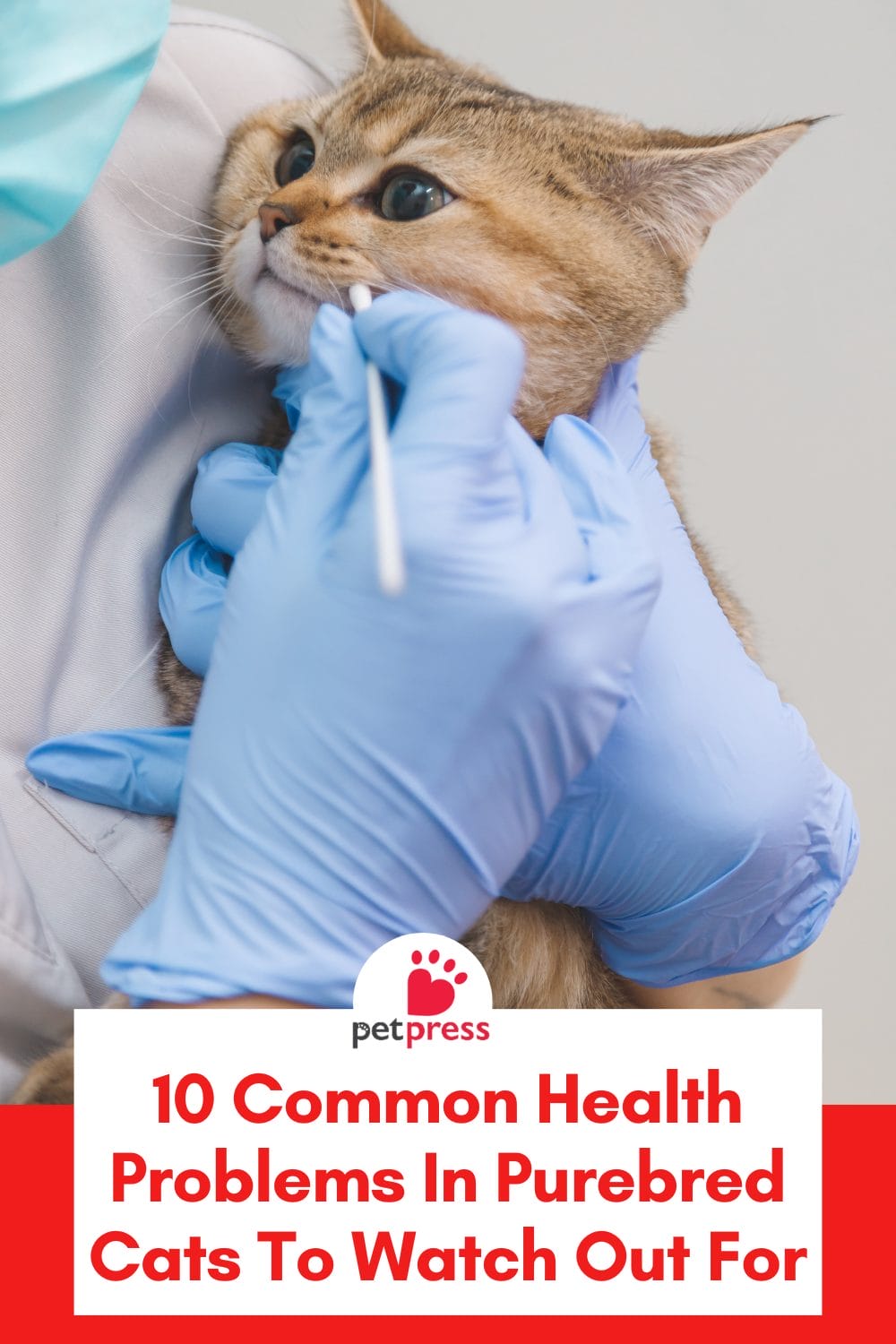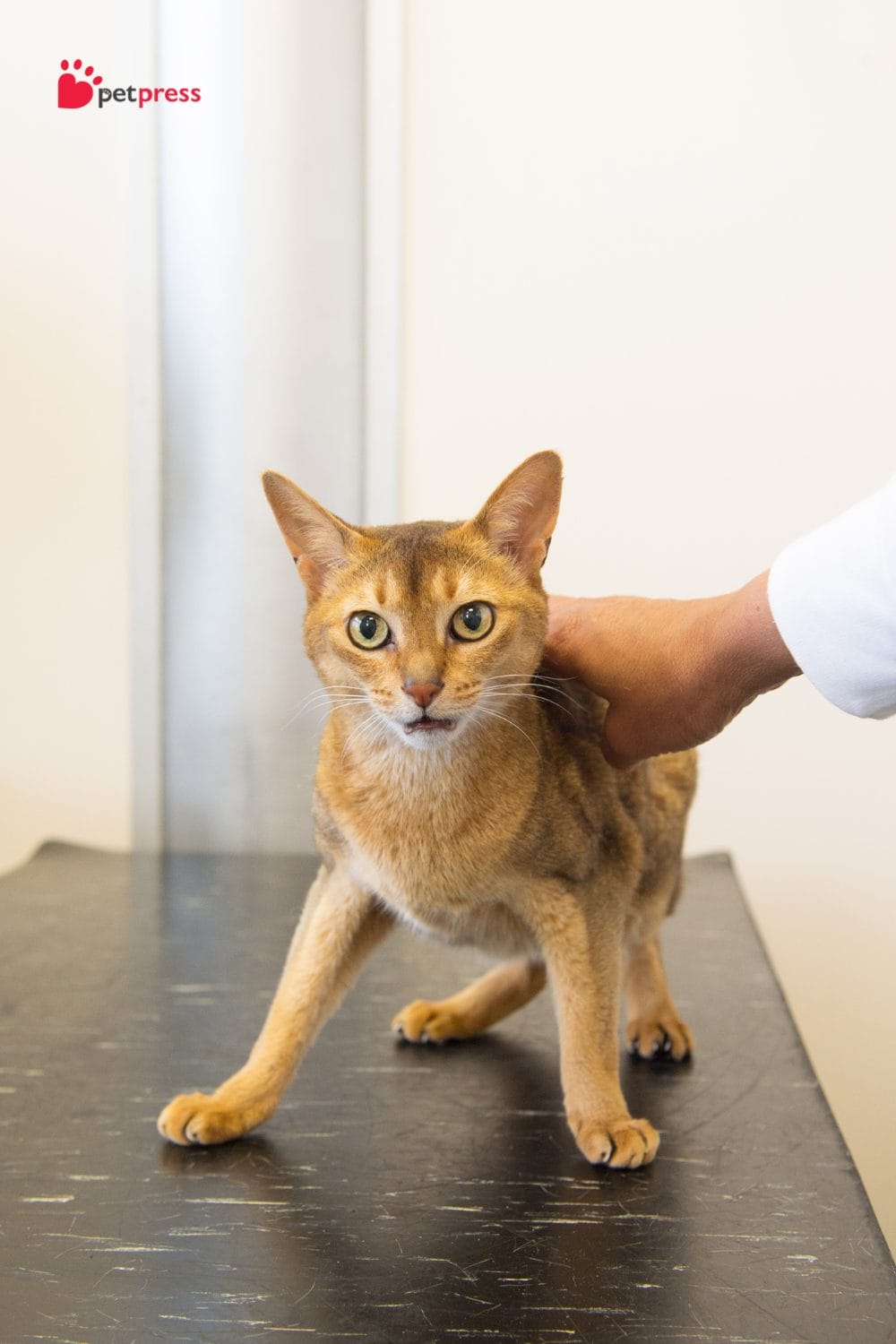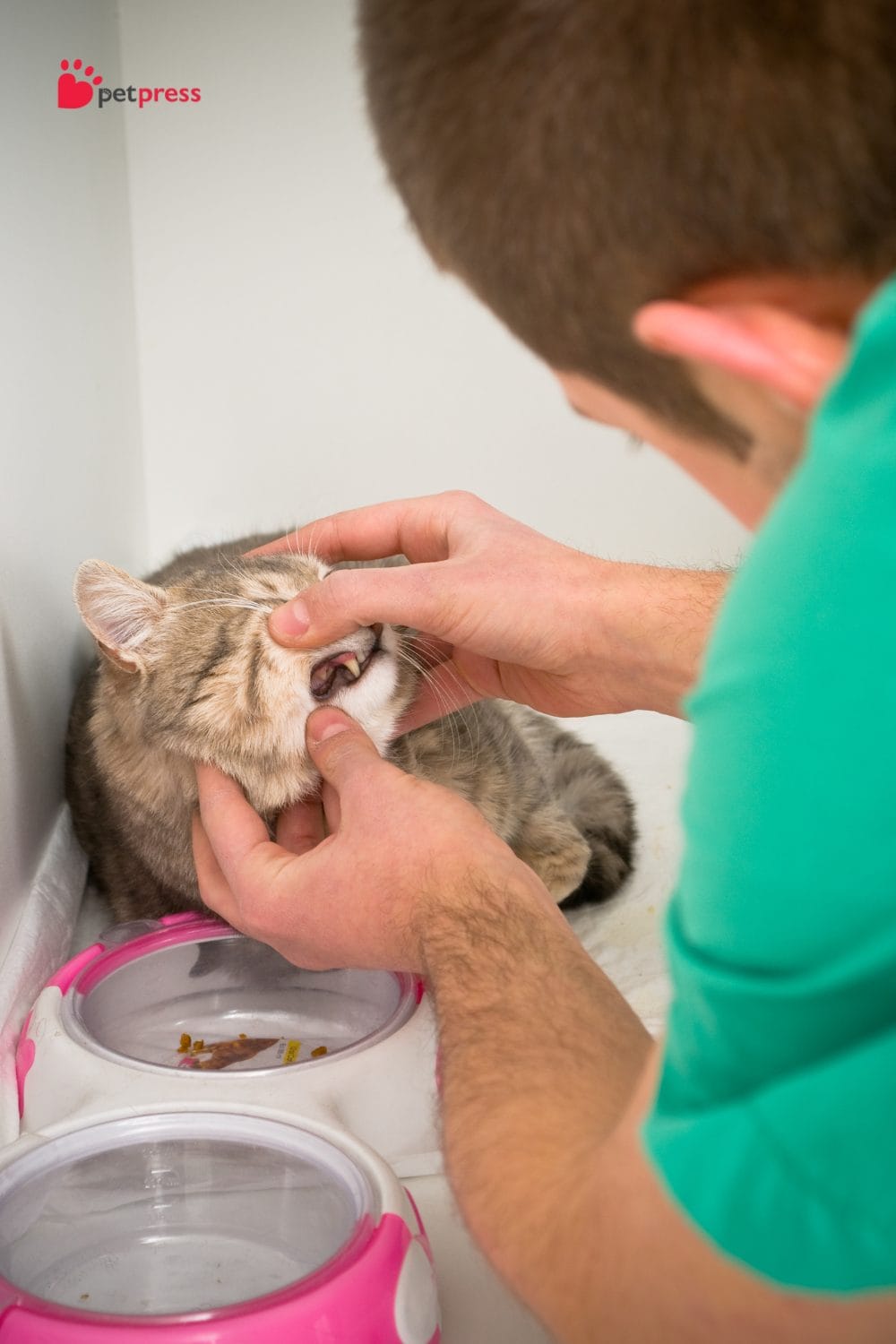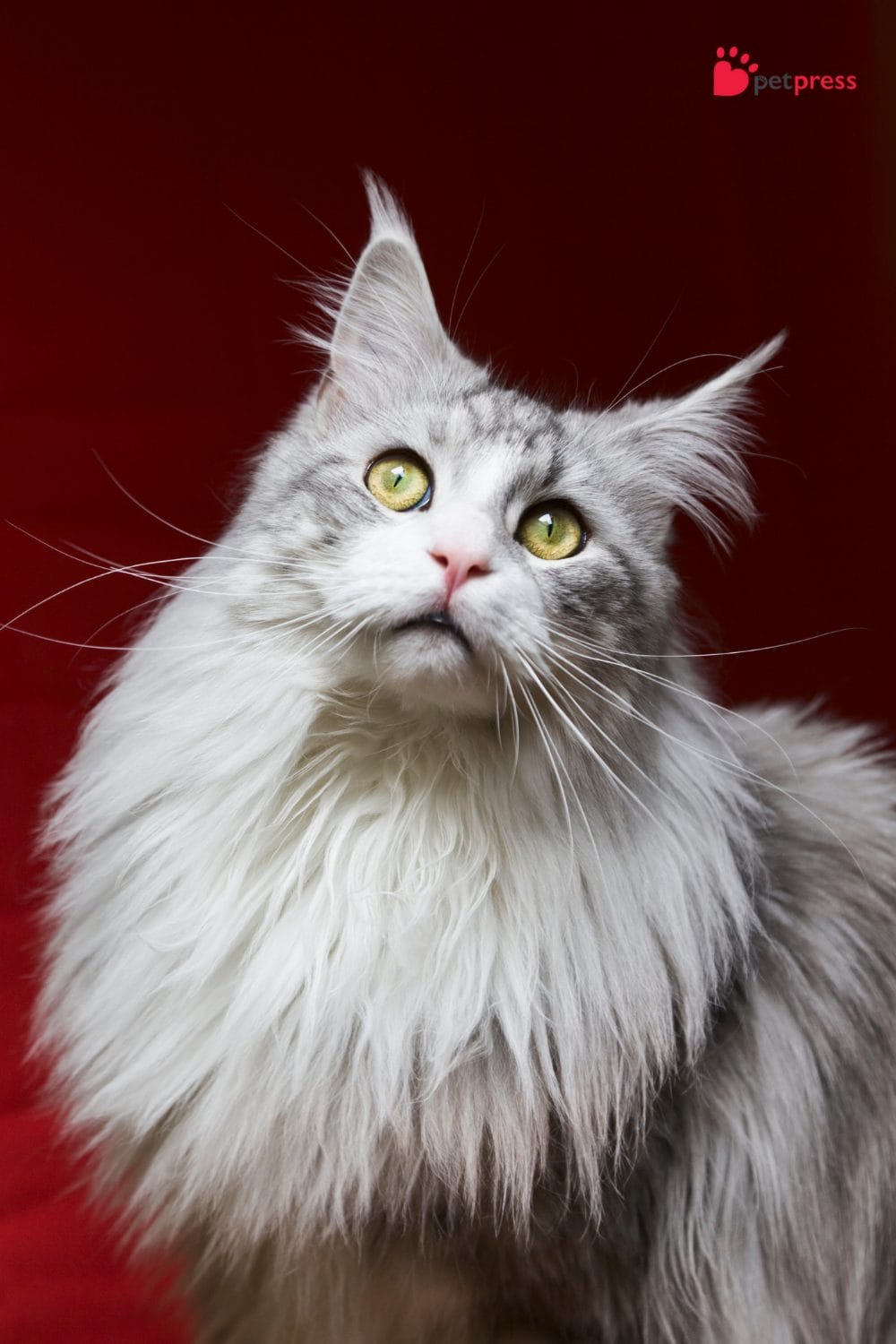
There’s a unique charm to purebred cats that cat lovers cherish. Each breed boasts its own majestic coat, distinct personality, and endearing quirks. But, owning these elegant creatures comes with a lot of responsibility, especially in terms of health. Knowing about common health problems in purebred cats is crucial for any devoted owner.
Awareness is the first step towards prevention. While purebred cats grace our homes with their poise, they can carry genetic health conditions. As owners, it’s essential to stay informed and vigilant.
We’ll show you how to spot early signs and take proactive steps in your cat’s care. After all, prevention is more than a choice; it’s a way to ensure your beloved feline lives a long, happy life by your side.
Recognizing the Signs: Get Ahead of Common Health Problems
Catching health issues in your purebred early could be a game-changer. It’s about knowing what’s normal for your feline friend and what’s not. This keen awareness can be the key to a swift recovery and a healthy life.
Be on the lookout for subtle changes in behavior, like reduced playfulness or a dip in appetite. These might be your cat’s way of saying, “I need help.” Also, watch for more obvious red flags like labored breathing, irregular bathroom habits, or sudden weight changes.
Recognizing the signs of common health problems in purebred cats often means the difference between a minor issue and a major ordeal. A cat that’s hiding more than usual or showing reluctance to jump could be signaling joint pain or discomfort.
And those persistent coughs or sneezes? They shouldn’t be dismissed as just a quirk.

The Purebred Predicament: Understanding Genetics
Purebreds are like a deck of cards, their genetic make up the hand they’re dealt. This DNA blueprint shapes more than just their stunning looks. It can also pre-program potential health challenges specific to each breed. That’s why understanding genetics is as important as a cat’s pedigree.
Certain breeds, for instance, are known to inherit troublesome genes. These can lead to specific conditions such as heart problems in Maine Coons or kidney disease in Persians. Recognizing these genetic predispositions enables us to be better caretakers. It’s all about playing the hand we’ve been given to the best of our ability.
10 Common Health Problems in Purebred Cats
By being knowledgeable about the health risks carried in their genes, we can act swiftly. Early detection and management of these inherited conditions often mean a world of difference.
So let’s dive into the gene pool, educate ourselves, and provide the best lives for our purebred companions. After all, every cat deserves a fighting chance for a healthy, happy nine lives.
1. Kidney Issues (e.g., Polycystic Kidney Disease)
Cats with Polycystic Kidney Disease often inherit it, and symptoms can appear later in life. This disorder gradually impairs kidney function, eventually leading to kidney failure. By noticing changes in your cat’s habits or detecting any discomfort during their usual litter visits, you can intervene before it’s too late.
2. Heart Conditions (e.g., Hypertrophic Cardiomyopathy)
Cats with Hypertrophic Cardiomyopathy may also exhibit fainting or chest pain, though these signs are less common. Regular vet visits are crucial, particularly because many cats are masters at hiding their ailments. A proactive approach with echocardiograms can catch this condition early.
3. Thyroid Problems (e.g., Hyperthyroidism)
A cat with hyperthyroidism may also show an unkempt appearance and a palpable mass in the neck. Treatment success rates are high, especially with early diagnosis. Regular blood work as part of your cat’s health routine can spot this issue before it progresses.
4. Respiratory Disorders (e.g., Asthma)
Asthma in cats can be triggered by environmental factors such as smoke, dust, or pollen. Being aware of these triggers and reducing exposure can significantly benefit your furry friend. In severe cases, your vet might suggest an inhaler specifically designed for felines.

5. Gastrointestinal Problems
Gastrointestinal troubles could be symptomatic of parasites, infections, or even chronic diseases like inflammatory bowel disease. Your veterinarian might recommend diagnostic tests such as bloodwork or ultrasounds to pinpoint the cause, ensuring that treatment can be as targeted as possible.
6. Dental Diseases
Preventative measures at home like specially formulated foods, regular brushing, or dental treats can significantly slow the progression of dental diseases. Ignoring dental health could lead to pain and even organ damage from the bacteria in the diseased gums and teeth.
7. Joint and Bone Disorders (e.g., Arthritis)
Arthritis may also show through changes in behavior, like irritability or decreased grooming. Treatments could include supplements like glucosamine or chondroitin, which support joint health. Regular soft bedding and easy access to all their necessities can greatly improve their quality of life.
8. Skin Conditions (e.g., Allergies)
These symptoms could lead to more serious conditions if left untreated. Dietary allergens, fleas, or environmental irritants are common culprits. Your vet might recommend allergy testing, followed by specific treatments such as hypoallergenic foods, antihistamines, or even immunotherapy.
9. Eye Problems (e.g., Progressive Retinal Atrophy)
Affected cats may also be reluctant to move in the dark or new environments. While PRA is not painful, it’s important to modify your home to keep them safe as their vision deteriorates, remove obstacles that may harm them and keeping their environment consistent.
10. Reproductive Health Issues
For breeders, understanding the signs of labor complications or infections like pyometra is critical. Neutering your cat also reduces the risk of certain cancers. A veterinary reproductive specialist can provide invaluable guidance if you plan to breed your cat.

Prevention Is Key: How to Care for Your Purebred
Preventive healthcare is the cornerstone of keeping your cat healthy. By establishing a routine early, you’re setting the stage for a longer, happier life together.
- Routine Vaccinations: Keep up with vaccinations to protect against common feline diseases.
- Parasite Prevention: Regularly treat for fleas, ticks, and worms to prevent parasitic infections.
Regular Veterinary Check-ups: Your Cat’s Health Compass
Regular vet visits allow for early detection and management of any health concerns. It’s your best defense against the unseen.
- Annual Wellness Exams: Yearly check-ups can catch health issues you might miss.
- Diagnostic Screenings: Ask about screenings appropriate for your cat’s age and breed.
Creating a Health-First Home Environment
Your home plays a big role in your cat’s health. Keep it safe and kitty-friendly.
- Stress-Free Settings: Reduce stress with quiet spaces and regular routines.
- Active Lifestyle: Encourage play and exercise to keep those muscles moving and joints flexible.
Nutritional Planning: Fueling Feline Vitality
Nutritious food supports overall health. Partner with your vet to tailor your cat’s diet.
- Quality Diet: Choose high-quality, age-appropriate cat food.
- Weight Management: Monitor food intake and weight to prevent obesity.
Building the Bond: Your Role in Their Health
Your relationship with your cat can significantly impact their health. Stay tuned in to their needs.
- Regular Grooming: Helps spot skin issues or changes in your cat’s condition.
- Observant Care: Be attentive to changes in behavior or habits that might signal health problems.

When to Seek Veterinary Care for Common Health Problems in Purebred Cats
Spotting anything unusual in your cat’s behavior or physical health calls for a vet visit. Don’t wait for minor symptoms to possibly worsen into major health issues. It’s always better to err on the side of caution and get professional advice.
Regular health screenings are as vital for cats as they are for humans. These check-ups can detect problems before they become apparent. Think of them as routine health audits to keep your kitty in tip-top shape.
Remember, early intervention can make all the difference in your cat’s well-being. If your intuition says something’s off with your feline friend, it’s time to reach out to your vet. Let’s keep those purrs coming and meow mishaps at bay!
Conclusion
So, we’ve journeyed through the labyrinth of common health problems in purebred cats, unraveling the signs and signals of possible concerns. Understanding these can transform you into a vigilant guardian, ready to act at the first whisper of trouble. Remember, knowledge is not just power – it’s also peace of mind.
Owning a purebred cat is a unique adventure, filled with fluffy cuddles and affectionate head-butts. Yet, it demands a proactive stance towards health, one where regular vet check-ups are your compass, and your attention to detail is the map. This informed approach to pet care ensures your feline companion thrives and you savor the unrivaled bond you share.
As we part ways, take this knowledge and be the hero your purebred deserves. Share your stories, spread the wisdom, and let’s create a world where every purr is happy and every leap is agile. Until next time, keep those whiskers twitching and tails high!
FAQs on Common Health Problems in Purebred Cats
Look out for symptoms like difficulty breathing, lethargy, or sudden collapsing. A vet can diagnose heart conditions via specific tests and suggest a treatment plan.
Wheezing, coughing, and struggling to breathe are key indicators. If you notice these, a visit to the vet is crucial for management options.
Keep an eye on symptoms like vomiting or diarrhea and consult your vet. They may suggest dietary changes and other treatments to improve digestive health.
Kidney disease, particularly polycystic kidney disease, is widespread. Early detection through regular vet check-ups can manage it effectively.
Spaying or neutering your cat is the most effective prevention. It also reduces the risk of certain types of cancers and unwanted behaviors.
- Does Cat Litter Melt Ice? The Complete Guide to Winter Safety - January 30, 2026
- Happy Tail Dogs: Understanding This Common Canine Condition - January 29, 2026
- How Cold Can Outdoor Cats Handle? Feline Winter Safety - January 27, 2026


GIPHY App Key not set. Please check settings